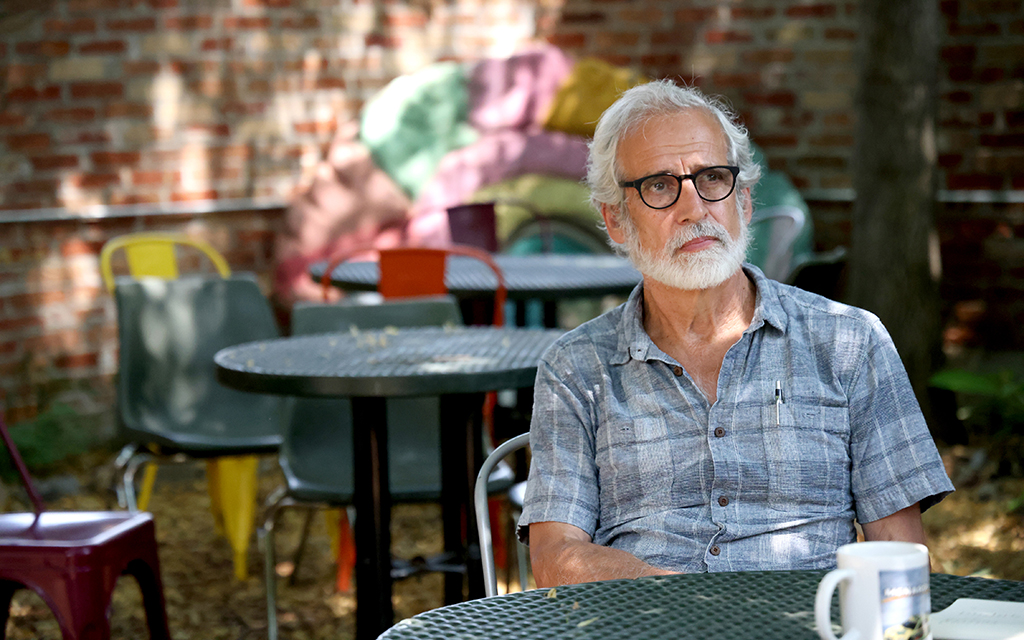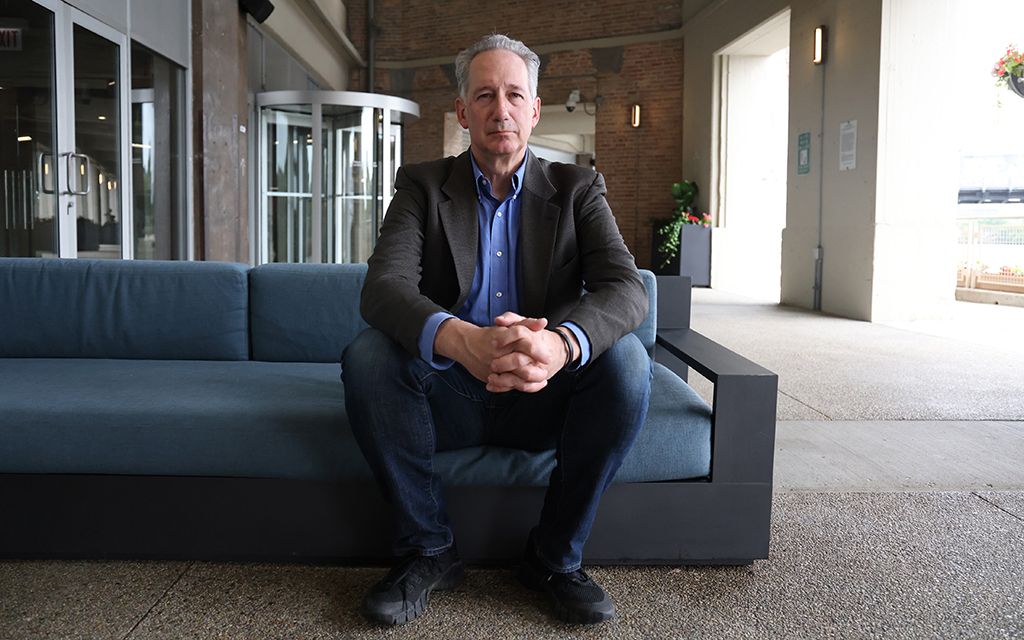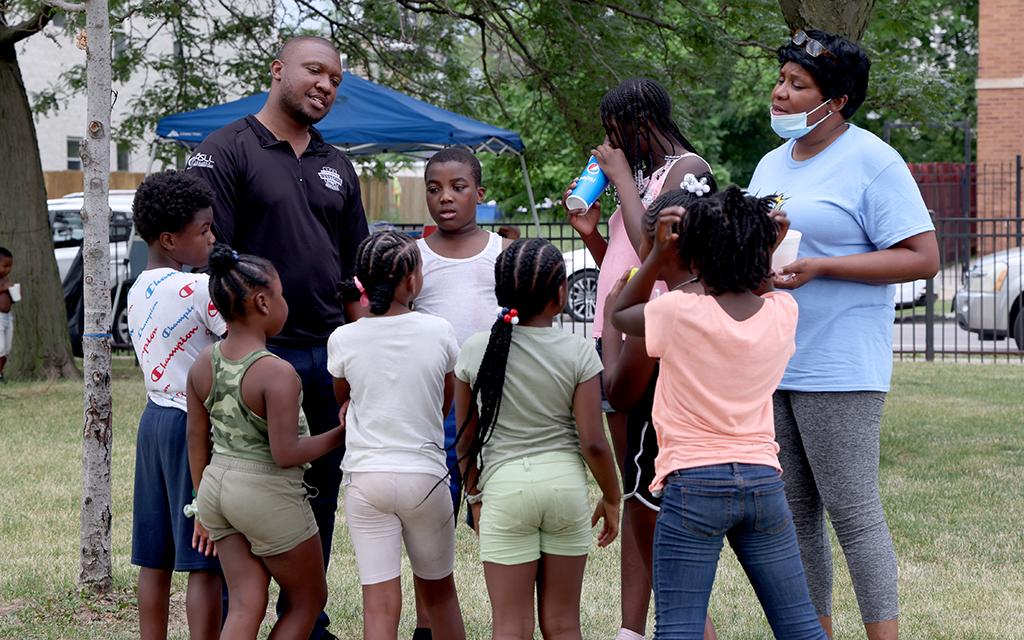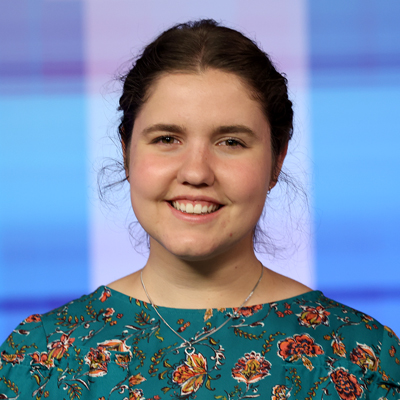
‘Proactive transparency’: A journalist pries open police misconduct records in Chicago
Sept. 27, 2022
CHICAGO – For journalist Jamie Kalven, holding the police accountable was a side effect of his work covering high-rise public housing on Chicago’s South Side.
Although he didn’t start out reporting on police, he observed the abuse he saw in public housing and began to write about it.
“I began to see how brazenly a subset of police officers – by no means all police officers, but a subset of police officers – violated people’s rights,” Kalven said. “This was a setting where people were so abandoned by public and private institutions (and) in some ways, assumed to be criminals.”
Eventually, the reporting led Kalven to file a federal lawsuit over public records and launch the Invisible Institute, a nonprofit where he served as executive director. The institute, according to its website, uses such techniques as investigative reporting, multimedia storytelling and curating public information to help hold public institutions accountable.
But it all started at Stateway Gardens, a public housing project. In a series called “Kicking the Pigeon” published from 2005 to 2006, Kalven reported on patterns of police abuse there. A federal civil rights suit, Bond v. Utreras, emerged from his reporting.
In that suit, Stateway Gardens resident Diane Bond claimed Chicago police officers had repeatedly harassed her. During the case, the city provided police misconduct information, but it wasn’t released to the public, according to media reports.
Kalven intervened in the case, as a journalist, saying the documents obtained through discovery in the legal process should be made public. The case eventually went to the U.S. Court of Appeals, which ruled in the city’s favor.
However, in a subsequent suit to release police discipline records, Kalven v. City of Chicago, he won. The ruling meant allegations of police misconduct were public information.
Kalven said transparency matters – for the public to play their role in democracy and for civil society institutions to be effective.
“Official secrecy is disempowering,” he said. “Transparency is also an antidote to various kinds of wrongdoing.”
After the decision, the Invisible Institute incorporated as a nonprofit and recruited staff members to work on the release of police information long shielded in Chicago. This work created the Citizens Police Data Project, which curates police information on behalf of the public.
Kalven, sitting in a chair at the end of a long conference table covered in papers, recently talked with News21 about the evolution of the organization. It started out as a loose idea, formed as Kalven, his wife and a friend told stories of their home on the South Side.
Now, the institute is a hub for Chicago police misconduct data, and the data project includes 247,161 allegations. The data project includes complaints and allegations made against officers, the number of sustained complaints and individual officer profiles that list officer salaries and discipline they received for use-of-force incidents. The data is from 1988 to 2018.

Joe Ferguson, a former inspector general of Chicago, worked with journalist Jamie Kalven to improve transparency in the Chicago Police Department. He credits smartphones for recent changes in police policies. “Our phones today are sort of the first draft of history.” (Photo by Gabriela Tumani/News21)
Although access to the records is groundbreaking, the information in the database isn’t complete. For example, information from an open investigation often is protected. And “some investigations that we know to have concluded are still listed in our data as ‘open,’” according to the database website.
Joe Ferguson, former inspector general of Chicago, worked with Kalven to improve transparency with the Chicago Police Department.
He said the push for transparency within policing has only grown since smartphones have become widespread.
“It changed the way that people activated and engaged in public space and communicated about things happening in all sorts of respects,” Ferguson said. “Our phones today are sort of the first draft of history, if you will.”
Despite the precedent set in Kalven v. Chicago and the investigation into the high-profile death of 17-year-old Laquan McDonald in 2014 that revealed what Kalven and Ferguson called the police department’s culture of “excessive violence,” experts and activists said they couldn’t quantify transparency improvements in policing in Chicago.
Although changes did occur initially, Ferguson said, “from a larger systems and societal perspective, next to nothing has changed.”
Chicago police declined a request for comment on its transparency efforts.
Kalven said the police should “throw the library open” when it comes to public records.
“What we’re promoting is this notion of proactive transparency, and then let the public decide what’s in the public interest.”

The Invisible Institute in Chicago uses such techniques as investigative reporting, multimedia storytelling and curating public information to hold the police department and other public institutions accountable. (Photo by Gabriela Tumani/News21)
Come back on Oct. 3, when we start publishing the main News21 “In Pursuit” project.
Our content is free to use. If you want to republish this story, find our terms of use here and download the text story and assets.


